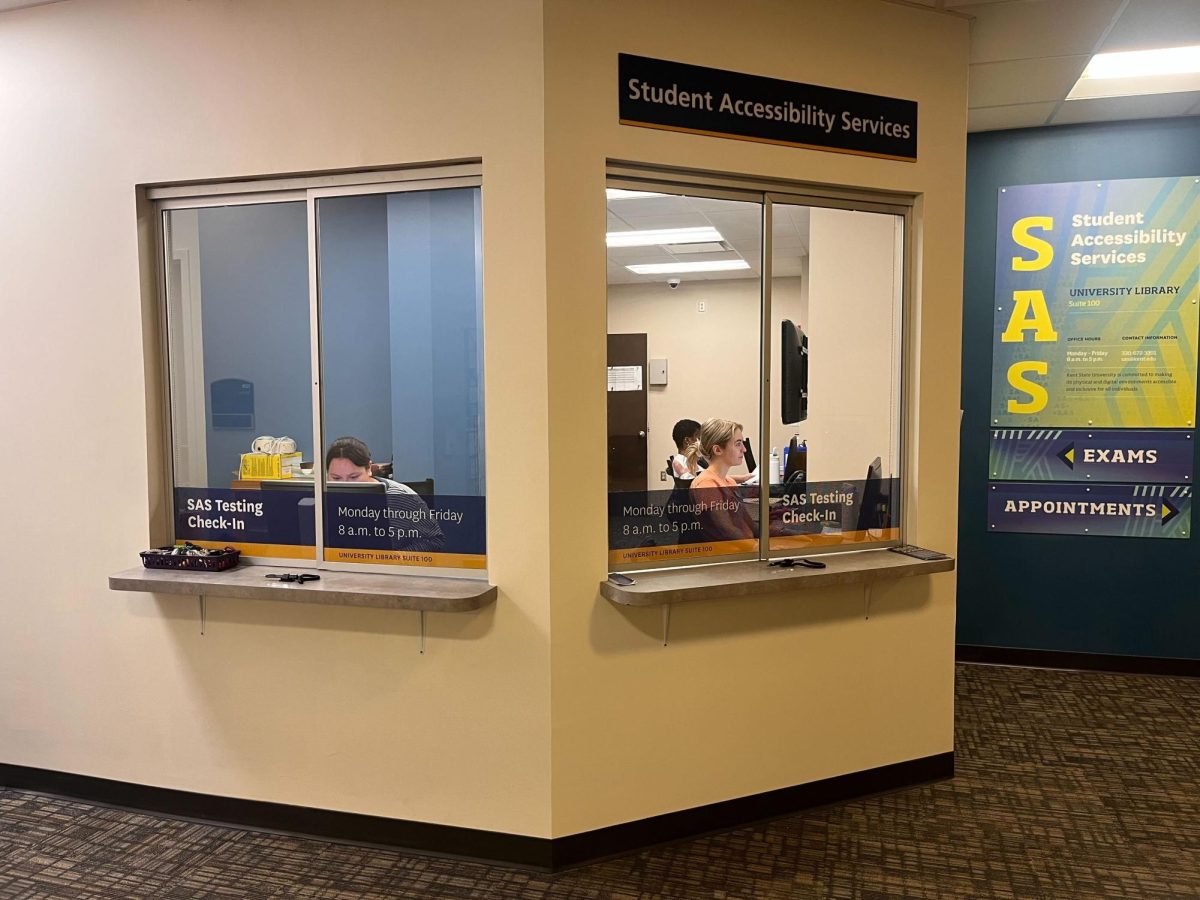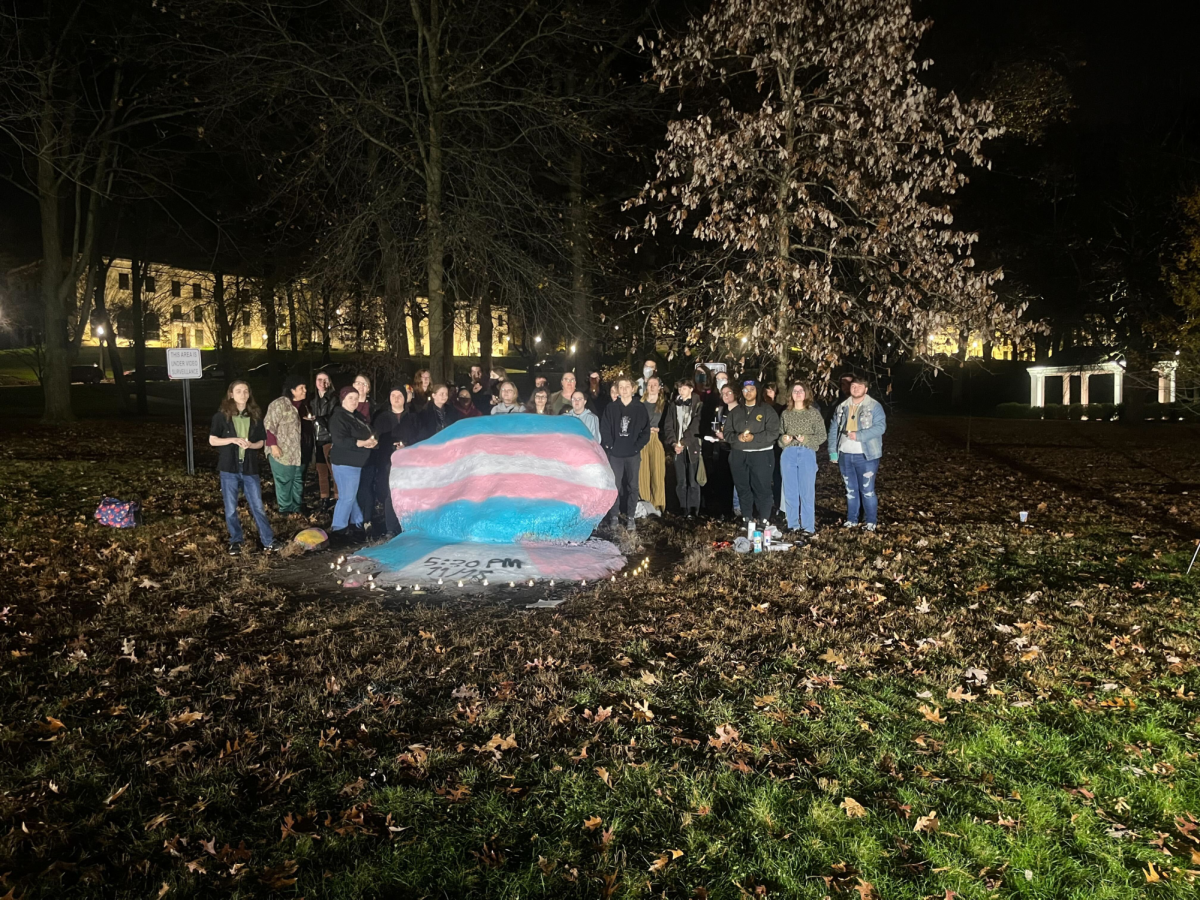Student Accessibility Services at Kent State University aims to provide all students with equal access to education.
The office provides accommodations, advocates for students with disabilities and educates the larger campus community about the experiences of students with disabilities.
About 21% of college students nationwide have a disability, said Amanda Feaster, the director of SAS.
“I do think it’s really important that students know who we are and what we do,” Feaster said. “We’re not an office that is going to apply to everybody, but we are an office that potentially any of our students may need at some point.”
Whether a student comes into college knowing what accommodations they need or develops the need for them throughout their time at Kent State, SAS is there to help.
Some of the main areas of accommodation SAS provides are academic, on-campus transportation, housing and dining.
Some of the resources SAS can help students with are getting extra time for exams, the ability to record class lectures, having a note-taking assistant or interpreter, using an alternative format such as braille, getting door-to-door bus transportation, getting access to a kitchen to prepare meals or having a roll-in shower in their residence hall.
Hailey Moltz, a sophomore human development and family sciences major, uses accommodations to receive recordings of lectures and any slides that go along with them, as well as extended time on tests.
“I often get very distracted, so my notes get jumbled,” Moltz said. “Having a recording of a lecture and the PowerPoint slides helps me stay focused and take better notes… It was fairly easy for me to gain these accommodations because they are fairly standard, all I had to do was provide documentation of my disability.”
Feaster said the accommodations SAS provides are different from what students may have been used to in the past.
“We have a lot of students that come to us having had an IEP (individualized education program) in high school and being nervous about what that looks like in college, especially if they didn’t have the best experience with it,” Feaster said. “I always encourage people to just come in and meet with us and get set up. If you get approved for accommodations and never use them, that’s totally okay. The student is the one who gets to decide that.”
For academic accommodations, SAS sends a generic letter to professors that looks the same for everyone, and students choose which classes they want to use their accommodations in.
“Instead of that experience in high school where your teacher gets that 15-page IEP that has all of your business, the student is now in the driver’s seat of deciding which professors get the email,” Feaster said.
Moltz shared how their accommodations even the academic playing field for them.
“I get extended time on tests so this helps me not become anxious about finishing the exam or quiz within a time that produces better scores,” Moltz said.
Feaster said she had accommodations herself while in college and has become passionate about providing support to others who need them as well.
“The educational environment is complex and is not always prepared for disabled students right off the bat, so we try to use accommodations to give students that equal opportunity,” she said.
For students who want accommodations, they can visit the SAS website to start an application. Once they meet with a SAS specialist, accommodations will get approved within a few days. For more help, they can visit the SAS office on the first floor of the library.
“It’s also something that’s a civil right,” Feaster said. “People with disabilities are protected under several federal laws, so this is not about an extra thing that we do because we feel sorry for students. This is about equal access to educational experience, so accommodations are something that students with disabilities have the right to have.”
Lauren Cohen is a reporter. Contact her at [email protected].








